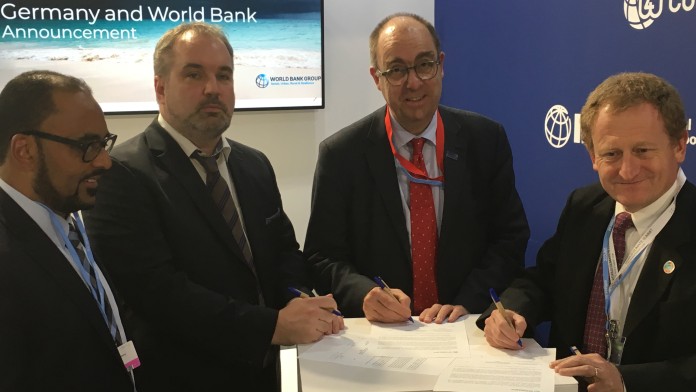News from 2018-12-13 / KfW Development Bank
Climate risk insurance comes to Central America

After a natural disaster, rapid assistance is needed not only for humanitarian measures, but also for the restoration of infrastructure. Developing countries are often overwhelmed with financial burdens. International aid payments require longer lead times. Insurance is needed for states, but while such instruments do exist, in many parts of the world there are still gaps to be filled.
On 12 December, KfW and the World Bank signed a EUR 15 million grant agreement for climate risk insurance in Central America at the Climate Change Conference in Katowice, Poland. André Ahlert, KfW Director for Latin America and the Caribbean, said at the signing ceremony: "Central America is one of the regions of the world most affected by the consequences of climate change in the form of hurricanes, heavy rainfall, landslides and droughts. The funds will be used to cover these risks and, in the event of a disaster, will quickly benefit the affected population."

The CCRIF insurance, set up in 2007 for the Caribbean, will be extended to Central America with the help of the funds now made available. So far, Nicaragua has joined. Panama and Guatemala are planning to join in the near future, with further countries to follow. In the event of a natural disaster, the insurance quickly provides the affected states with funds within weeks or sometimes days – when they are most needed – on the basis of predefined parameters such as the severity of hurricanes, without requiring an inventory of the damage.
The funds are disbursed by CCRIF – almost USD 140 million since its inception. CCRIF uses the funds provided by the German government through KfW together with funds from other donors from the World Bank fund as a risk buffer. This enables cheaper premiums with reinsurers and ultimately affordable insurance premiums for the insured states. In addition, the regional approach makes it possible to pool risks and thus further reduce insurance premiums. The project is part of the InsuResilience initiative for the expansion of climate insurance, launched in 2015 under the German G7 presidency.

Share page
To share the content of this page with your network, click on one of the icons below.
Note on data protection: When you share content, your personal data is transferred to the selected network.
Data protection
Alternatively, you can also copy the short link: https://www.kfw-entwicklungsbank.de/s/enzBWrMC.B6MA
Copy link Link copied